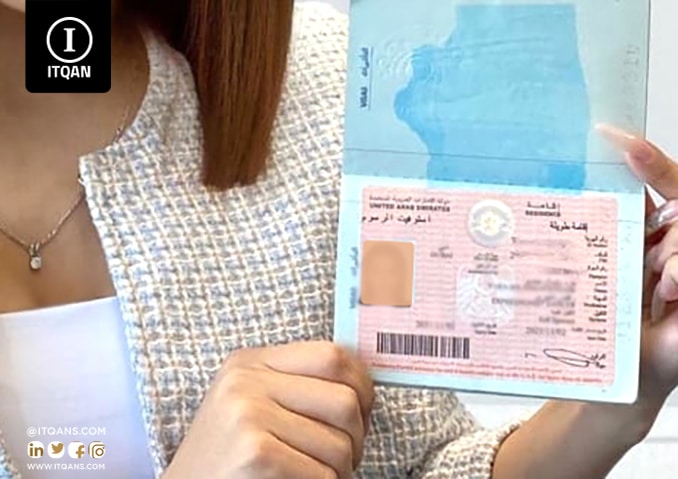Dubai, a global business hub, has implemented Value Added Tax (VAT) regulations to boost revenue and support public services. For businesses operating in Dubai, understanding and complying with VAT regulations is crucial to maintain legal and financial integrity. In this guide, we will walk you through the entire process of complying with VAT regulations in Dubai, ensuring that you have the necessary knowledge to meet your obligations and avoid potential pitfalls.
How to Comply with VAT Regulations in Dubai?
In this section, we will explore step-by-step instructions on how businesses can ensure compliance with VAT regulations in Dubai.
1. Understanding VAT and Its Implications
Before diving into compliance procedures, it is essential to grasp the concept of VAT and its implications for businesses. Value Added Tax is a consumption tax levied on the supply of goods and services at each stage of production or distribution. It is ultimately borne by the end consumer.
2. Determining VAT Eligibility
The first step towards compliance is to assess whether your business needs to register for VAT. Businesses with an annual turnover exceeding the mandatory registration threshold must register for VAT.
3. VAT Registration Process
Once you establish that your business needs to be VAT registered, the next step is to go through the registration process. This involves submitting the necessary documents and information to the Federal Tax Authority (FTA).
4. Maintaining Accurate Records
To ensure smooth compliance and efficient reporting, maintaining accurate records is crucial. Keep meticulous records of all transactions, including sales, purchases, and expenses related to VAT.
5. Issuing Correct VAT Invoices
VAT invoices are critical documents for both businesses and customers. Ensure that your invoices are accurate, compliant, and contain all the necessary details required by the FTA.
6. Understanding VAT Rates
Dubai has standard and zero-rated VAT supplies. Understanding the different VAT rates and applying them correctly to your products or services is vital for compliance.
7. Implementing VAT in Pricing
When VAT is introduced, businesses need to adjust their pricing strategies to include the applicable tax amount. It is essential to communicate these changes transparently to customers.
8. Submitting VAT Returns
Regularly filing VAT returns is a critical aspect of compliance. Familiarize yourself with the submission deadlines and requirements to avoid penalties.
9. Understanding Input Tax Credit
As a registered business, you can claim input tax credit for the VAT you paid on purchases and expenses. Understanding how to calculate and claim this credit is essential to optimize your cash flow.
10. Handling VAT Penalties and Audits
Inadvertent errors can lead to penalties or audits. Learn about common mistakes to avoid and how to handle any audit requests from the FTA professionally.
11. Dealing with VAT Exemptions
Certain goods and services may be exempt from VAT. Knowing which supplies are exempt and how to handle them correctly is essential to avoid compliance issues.
12. Complying with Intra-GCC Transactions
If your business conducts transactions with other GCC countries, there are specific rules and procedures to follow. Familiarize yourself with the regulations governing these transactions.
13. VAT for E-Commerce Businesses
E-commerce businesses have unique challenges when it comes to VAT compliance. Understand the specific rules and obligations that apply to online transactions.
14. Seeking Professional VAT Advice
Complying with VAT regulations can be complex, especially for larger businesses. Consider seeking professional advice from tax experts to ensure accurate and timely compliance.
15. Emphasizing Employee Training
Educate your employees about the VAT regulations relevant to their roles. Proper training can prevent unintentional errors and ensure overall compliance within your organization.
16. Staying Updated on VAT Changes
VAT regulations may evolve over time. Stay informed about any changes or updates to the rules to remain compliant with the latest requirements.
17. Implementing VAT Compliance Software
Using specialized VAT compliance software can streamline your processes and reduce the risk of errors. Invest in reliable software tailored to Dubai’s VAT regulations.
18. Utilizing Government Resources
The FTA provides comprehensive resources and guides to help businesses comply with VAT regulations. Take advantage of these official resources for accurate information.
19. Engaging with Peers and Forums
Interacting with fellow business owners and experts in online forums can provide valuable insights and practical tips for VAT compliance.
20. Conducting Periodic Internal Audits
Regularly reviewing your VAT compliance processes through internal audits can help identify and rectify potential issues before they escalate.
21. Leveraging VAT Compliance Consultants
Larger businesses or those with complex operations can benefit from the expertise of VAT compliance consultants. Explore the advantages of outsourcing compliance services.
22. Evaluating VAT Impact on Cash Flow
Understand how VAT affects your cash flow and financial planning. Plan accordingly to ensure your business’s financial stability while meeting VAT obligations.
23. Promoting a Culture of Compliance
Encourage a culture of compliance within your organization by prioritizing ethical and legal business practices. This commitment to compliance starts from the top.
24. Monitoring Competitors’ Compliance
Keep an eye on your competitors’ compliance efforts to benchmark your own practices and learn from industry best practices.
25. Preparing for VAT Audits
Even with robust compliance processes, businesses may face random VAT audits. Always be prepared for an audit and cooperate fully with the authorities.
FAQs (Frequently Asked Questions)
Is VAT applicable to all businesses in Dubai?
Yes, VAT is applicable to most businesses in Dubai, with few exceptions.
How can I register for VAT in Dubai?
To register for VAT in Dubai, you need to submit the necessary documents and information to the Federal Tax Authority (FTA).
What are the consequences of non-compliance with VAT regulations?
Non-compliance with VAT regulations may result in penalties, fines, or legal consequences.
Can I claim input tax credit for the VAT I paid on purchases?
Yes, as a registered business, you can claim input tax credit for the VAT you paid on eligible purchases.
Are there any goods or services exempt from VAT in Dubai?
Yes, certain goods and services may be exempt from VAT in Dubai.
How often do I need to file VAT returns?
VAT returns must be filed on a regular basis, usually quarterly.
Conclusion
Complying with VAT regulations in Dubai is a fundamental aspect of running a successful and sustainable business. By understanding the rules, seeking professional advice when needed, and maintaining accurate records, businesses can ensure smooth operations and avoid any potential penalties or legal issues. Stay updated on changes to VAT regulations, promote a culture of compliance, and implement best practices to foster growth and prosperity within the dynamic business landscape of Dubai.







